Yep. That’s what I said How to promote your business offline!
It’s old school marketing all the way this week. None of this fancy new online marketing. Uh-uh!
That’s for the young kids.
Tune in to this episode and you’ll discover how to promote your business offline.
Yep … no websites, likes, tweets, hashtags, PPCs, pins or requests to connect in sight.
Instead, you’ll hear from Adelaide Accountant, Andrew Mattner of HMCR Accountants, who’s built a successful practice by:
- Implementing a solid referral strategy (90% of their new business comes from referrals by existing clients).
- A simple approach to client entertainment.
- Educating clients and prospects on key issues they need to know about.
- Setting up a charitable foundation.
- Being crystal clear on what their brand stands for and ensuring all 25 staff are on the same page.
But the marketing gold doesn’t stop there. In this episode of Small Business Big Marketing, I also:
- Update you on Daniel Flynn’s mission to get the Thankyou brand distributed by Coles and Woolworths. He has some massive news following my chat with him on episode 147 of the Small Business Big Marketing show.
- Speaking of thank-yous, I give a big one to Small Business Big Marketing Forum member Mark Penney of Melbourne IT support business MeppyIT.
- Tackle a listener question regarding their editorial mission.
- Share some feedback from a listener who’s starting a new surf brand.
- And share a big win I had this week by being included (alongside my old mate Seth) in Infusionsoft’s infographic titled 50 Small Business Blogs To Watch.
Oh, plus I remind you of a listener meet up in Melbourne on August 29 – You can view the details of the Small Business BIg Marketing Meet Up here.
So, grab a cuppa, pen and paper and get ready to catch some marketing tips and tricks for your small business.
Episode Transcription
Tim: Alrighty, we are now going to get stuck in to, to today’s interview and I really, really love this interview. I tell you why – it’s old school. It’s absolutely old school. It’s with a fellow Andrew Mattner, he’s a partner at a chartered accounting and financial planning firm in South Australia called Hattam McCarthy Reeves and I got a note from one of my forum members, Luke who said it’s his accountant, he says “you got to interview him, he does great marketing!” and he sent me some examples of the marketing that they do and it is, it’s great. This show is called small business big marketing for a reason and it’s about small businesses who are doing big marketing, funny that. Andrew fits and Hattam McCarty Reeves fit into that category. What I love about this interview is we talked about ideas to attract and retain customers that are absolutely old school traditional marketing methods. Yes these guys have an online footprint but we didn’t talk about it. We talked instead about referral marketing, about holding educational events, about setting up charitable foundations, about client entertainment, about all of those whacky things that often can kind of slip through the gap as we chase the all mighty social media silver bullet, all the SEO silver bullet, all the Google Adwords silver bullet. There is no marketing silver bullet guys and I just think it’s a wonderful conversation that this show hasn’t had for a while. Without further ado, here is Andrew Mattner, partner in a chartered accounting firm in South Australia, enjoy and I’ll come back later on with a wrap up with my top 3 learning’s.
Andrew Mattner from Hattam McCarty Reeves chartered accountants in South Australia, welcome to small business big marketing.Andrew: Thanks Tim
Tim: Now Andrew, I got to start mate by asking about this apple business. Your brand, your visual brand is red apples and you’re an accountant. What’s all that about?
Andrew: Yes, well I think apples represent a lot of things and I guess in terms of our cards and the way we work with people, I guess that the apple’s a symbol of health and well being and soulfulness. Our purpose is to change people’s lives and help them out and an apple is a good representation of that.
Tim: Right, now it’s on the website.
Andrew: Yes
Tim: How does the apple play out throughout the business or doesn’t it?
Andrew: It does, it’s one for letterheads and logos and all that sort of stuff, keep colors red in line with the red apple
Tim: You got to have the fruit bowl in the reception desk, don’t you?
Andrew: We have at different times that definitely happen. Fruits entertain our eyes, sort of thing.
Tim: So when a client rings and says “Andrew! Andrew! My tax bill, it’s horrendous!” do you just look them in the eye and go “show me apples”
Andrew: No, no, not so much but what we do say is that you knew about that text bill before you go so it shouldn’t be a surprise.
Tim: Yes, the accountant giving tough love. Well let’s talk about that because I noticed one of the things you say in terms of services delivered is that you guys provide financial and business advice delivered in a down to earth manner and I think you just did that. Tell us a little bit more about down to earth and how that plays out in the business.
Andrew: We’ve got some pretty strong values and one of that values that actually sits on our role, Tim, is novice friendly and what that means is we’re not stuffy accountants. We don’t sit in a 20-storey building with suits and ties and things like that. We’re down to earth; we call it as we see it. We attract clients like that and business owners that like that, that want to work with us to improve what they do and sometimes we say things that will challenge people or challenge clients and things like that. At the end of the day, that’s the right thing to do. It’s more about improving you even if it’s not necessarily even the best thing for us.
Tim: When I hear about and I respect the power of values when they are respected and honored by the entire team, when I hear that you have values hanging on the wall, my cringe meter goes up a little because I’ve seen so many businesses where they hang on the wall but if I were to ask the staff “hey what are your values?” they kind of look at me glazed eyes. Would that happen if I went into your business?
Andrew: Definitely not. That’s something that we focus on a fair bit and all that values and service standards are part of our employment contracts. We’ve got very strict standards in terms of how we engage with our clients, simple things like returning phone calls and emails within the same business day, well that’s part of our service standards and culture and everyone is empowered and do call others out when they don’t do the right thing.
Tim: Mate it’s so powerful. When it does happen, when it is really lived within the business, it’s amazing. I interviewed Richard Crawford, who started the Henry Jones Hotel down in Hobart, interviewed him a few weeks ago and I had this similar conversation. He had a fantastic saying that he came up with but imparted to every staff member which is “guys and girls, we offer black tie service with a blue jean attitude” and it was like everyone in the business knew about it.
Andrew: Yeah, I was going to say it’s a bit like us. One of the takes that we got on some internal working document here is casual approach, serious results and that’s just in line with exactly what you’re saying as guys from the hotel.
Tim: I love it mate. Well done for honoring the whole values thing. I actually call them guiding principles because that’s kind of what they are. It’s an active description of what others call core values. Hey listen, Andrew I’m guessing having had a look at your approach to marketing and having, as I mentioned at the start before we went on air, one of the referrals to getting you on here was Luke whose part of the small business big marketing forum and he’s kind of bump a bit of your marketing my way. I would say that you’re more of an offline marketer than an online marketer, a bit old school, fair?
Andrew: Yeah, probably but I think evolving in that space.
Tim: By the way, don’t be embarrassed about that because I’m kind of hoping I can title this whole conversation, offline is not dead because we talk a lot about online.
Andrew: Yeah, look definitely I think there’s sort of a fair bit to that old school way of doing it but we are trending to some more of the modern ideas and stuff like that, there is an embrace of social media and all of the things like that straight out of the office.
Tim: But why?
Andrew: That’s a good question.
Tim: I love it, I love it.
Andrew: But maybe it’s the right thing to do
Tim: Exactly, exactly and hints mate it was almost a leading question and I love that you paused because you know, do it for the right reason I supposed would be my advice. Yes it’s there, it’s not going away. Everyone is on Facebook now, Twitter’s popular, blah, blah, blah, LinkedIn I guess for you guys but the wrong reason is because it’s invoked, the right reason is because you’ve found a way to profit, to provide a return of investment from it.
Andrew: Yeah, look I think for us in terms of return on investment, we will be very careful at how much time we spend there and the financial rewards that otherwise come out of it on the other side and the reality is in terms of marketing, most of our new business or activity comes from referral and we’ve got an active referral program and we encourage that and it doesn’t come off Twitter and it doesn’t come off Facebook so I guess the point then of resources in the right spots is something that we’re constantly aware off.
Tim: Okay well I’d love to have that offline conversation because there are a few things that you’re doing. I’d love to understand the referral program and I’m sure listeners would.
Andrew: Yep!
Tim: You’ve got some, you run free educational seminars, I want to hear about those and there’s a couple other, you’ve got a foundation, there’s a whole lot of big, what I call big offline marketing strategies you guys are employing. Let’s start with referrals, how does that program play out?
Andrew: How it plays out is, I mean we have to look at and put a lot of, generally a lot accountants or a lot of businesses for a long period of time don’t know where to get new business front so we actually sit down, we were part of the coaching group and did the numbers on it and realize that 90% of their new business comes from referrals from existing clients and so what we needed to do is we need to formulate new strategies of getting more from that channel so what it came down to is we put in place a simple gift, I think hand written note and a gift to a certain value for the first inquiry and then if a client actually convert from that, there’s actually a return or reward that goes to the referrer from there. Whether that’s from a senior clients, whether it’s from a team member, we treat that across the board and we’ve got effectively 3 different business segment, in terms of the business advisory, we got our text division and we got our financial planning division. It’s equal; we do the same thing consistently across this three different business segments and that’s where it worked really well. The feedback from that has been really great and it’s been active for about 8 or 9 months. We’ve been very focused on doing that and I guess we haven’t been, once we’re more aware of it, we haven’t been afraid to ask. It’s great to get the feedback from clients that “yeah you’re doing a good job” from centers of excellence “yeah we’re really impressed with how you worked this client or what you’ve achieved here” then it’s somewhat great, we really appreciate that feedback. If anybody else you think can benefit from what we provide, we’d love a bit of a leg up.
Tim: I love that, I know some of our overseas listeners will be going “what are these guys saying, leg up?” Tell me, interesting, so really my question was “how do you ask?” you’ve just shared that. I know there’d be some business owners out there too scared to ask because they don’t want the “no” answer, “what if they say no?” Two things there, one is they’re less likely to say no, secondly in your case, 90%, you’ve got a 90% chance of them saying yes.
Andrew: Yeah and look you answered the right time. You don’t go out to a client with a big billing, “by the way, would you refer somebody to me?” we have annual general meetings, we go through different things, coordinating reviews and the feedback we get from clients at different times is well it’s really great, we’re really pleased. It’s about picking the right time as well.
Tim: Do you capture, sounds like you’re getting a lot of feedback.
Andrew: Yep
Tim: Do you ever capture that, beyond asking for referrals, do you capture testimonials? Do you ask clients to talk on your behalf? Yeah?
Andrew: Yeah we do all that so we’ve got testimonials and case studies that we grab. We also, we’ve just implemented over the last couple of months at the completion of every major project or job that our clients get an online survey to complete, requesting feedback because one of our key matrix in here, in terms of how we’re going and what our net promoters score is, we’re actually tracking that and we’re actually running at a pretty good rate at the moment.
Tim: What percentage complete, I hate surveys, how many complete the surveys?
Andrew: It’s actually pretty good
Tim: I knew you’d say that
Andrews: We’re actually up about, it’s over 80%
Tim: Nice
Andrew: Yeah it’s good
Tim: Do you incentivize that?
Andrew: No, we don’t. If clients want to complete it, they complete it; there’s no obligation. If they don’t want anything, they don’t have to.
Tim: Online survey? Survey Monkey or something?
Andrew: Through Survey Monkey
Tim: Yeah, well good. I completed a survey yesterday for my kids’ school and it just kept on going and I thought I’m on the last page and it just kept on going and going and in the end I struck out. Hello to the principal of my kids’ school. Referral, if I flick you some business, you’re going to give me a little prissy straight up for an inquiry and then just to kind of get really clear on that, if that business, if that prospect become a client, then there’s a financial reward for the referee?
Andrew: Or a great gift
Tim: Nice
Andrew: It might be an accommodation voucher or a travel voucher or it might be a decent dinner out, it could be financial, whatever.
Tim: Whose responsibility is it to track that because that could become quite a big job
Andrew: We’ve got an internal marketing coordinator
Tim: Nice, nice
Andrew: Yeah, so we’re a chartered accountant, business advisory, business with internal marketing coordinators. It’s a bit of a new thing but we’ve got one.
Tim: Well good on you and just to seem to understand, the size of your business for you to allow that, for that to allow you to have an internal marketing coordinator, you have 25 staff?
Andrew: Yeah I got 25 staff
Tim: Turnover?
Andrew: Nearly 4mil
Tim: Well and truly affordable, okay so let’s keep talking offline marketing Andrew. Educational, I love this idea. Tell us about what you do there.
Andrew: Look in different areas; we got seminars for emerging technologies or opportunities for clients. My financial planning planner is very passionate about educating the next generation business owners that are coming through so it might be about learning about the stock market, it might be different investment principles, superannuation, the emergence of cloud technologies.
Tim: So we’re talking an evening sort of seminar type of thing.
Andrew: Yeah, exactly right and we just put some nibbles and some drinks after the seminar to give the opportunity for clients to get around and talk
Tim: Just for clients?
Andrew: No, they’re always encouraged to bring along guests and things like that. We make them open to the public at different times depending on what the topic is.
Tim: Do you record them?
Andrew: We’re starting to
Tim: Yeah, lost opportunity if you’re not. I mean you’re sharing so much knowledge there, why wouldn’t you be recording those puppies and putting them on a YouTube channel, transcribing them, creating blog posts out of them, sitting them around, so much you can do.
Andrew: That’s just something we’re starting to do with our team. We just got the YouTube channel up and running and there’s only a handful of stuff and videos on there at the minute but the content bank is being developed every time we run a session for sure.
Tim: Okay, we continue the offline discussion and you have got a foundation which I love
Andrew: Yeah
Tim: Tell us about how that whole… what is the foundation? And what role does it play in your marketing?
Andrew: Yeah what we did about 2 years ago, we recognized the need to get complimentary business services as part of our offering and one thing that we didn’t have at that time was financial planning. One of the colleague, one of my colleagues, Tony who I had known for a long period of time came from a big stock broking thing and we sit in and we said “what’s everything we don’t like about the financial planning industry?”
Tim: Great question, great question.
Andrew: And we didn’t like commissions, we didn’t like how they got paid, the underlying principle of that, it came back to us. You recommend something; you do something for it for a client because it’s in their best interest, not because you get a trial out of that. That’s traditionally how the industry worked for a long period of time so what we did, when we started up we said “well there’s certain commissions that we can’t either rebate to clients or we can’t turn off” and that might be $2 here, $3 there that is just unpractical to give back so we said “well what do we do with it? We don’t want to keep it, it’s against our values. It’s not one with our business model” then we said we’ll give it away and we said “well how?” and we thought what we’ll do is we’ll setup our own foundation. We set some key guidelines of who we were going to support so certain community groups or whatever an area that we wanted to support and all those commissions that can’t be rebated to clients or turned off, go into the foundation and we give them away. It’s also open to clients so clients can contribute to it. People might make an intimidation that they want to give away for a hundred dollars but they don’t know where so we say “here you go. You guys go and do it. You know what you want to do here in terms of supporting that, we agree with that. Pull it together, go on.”
Tim: Great idea, again that’s your values at work. I mean you didn’t feel comfortable, talk about how the plates didn’t aligned. This is what your values and you’re being forced to do something because there were commissions you couldn’t give back so the values have guided you into a place that has worked on a whole lot of levels.
Andrew: Yeah correct
Tim: How long has the foundation been around, Andrew?
Andrew: It’s been around since we started financial planning so about 2 years ago, it’s called the Catapult Foundation and over the last 12-18 months we’ve given away over 50 grand into local charities, we support at risk youths, the homeless, kids, disabled kids to help them integrate back into the work force, things like that.
Tim: Do you, how do you choose where that money goes?
Andrew: We actually sit down and we develop relationships with these people. We didn’t want it to be mainstream. I guess the big mainstream charities have a lot bigger publicity budget or advertising budget that they can draw door knockers or whatever it might be. We just pick the certain things that were important to us that we want to sort out partnerships I guess in those areas and pick 4 or 5 key bodies and just supporting them.
Tim: It’s fantastic, okay so what role does The Catapult Foundation play in your marketing?
Andrew: In terms of our marketing we have an annual movie night and we invite all our clients along into that and that was about a month ago and that’s where we presented all the checks. For our clients to see that we’re doing the right thing, I mean it’s great for us to say that we’re doing it but there’s actually evidence when you’re handing across checks that we demonstrated that we do what we say we’re going to do. From that perspective, it’s on our websites online, through our financial planning website and so on. It’s marketing throughout E-news, throughout news leaders and other things like that.
Tim: Good on you, it was a bit of a leading question and I’m glad you answered it like you did because sometimes I hear businesses do it and you either do it for philanthropic reasons or for social conscience/marketing reason and in philanthropic you hide behind it, the world doesn’t need to know but I don’t think there’s anything wrong with kind of making it a part of positioning your brand and how you market your business. I think it’s fantastic. I spoke to a few social entrepreneurs of recent episode, making the world a better place is a good marketing strategy.
Andrew: Exactly right, I mean that comes back to our core purposes, change people’s lives for the better that’s why we turn up here today
Tim: Yeah, okay well that’s interesting in itself. That is almost, that’s your “why” we talk about the why on this show, why do you do what you do, so changing people’s lives for the better is something that everyone in the business has a sense of?
Andrew: Absolutely and that’s something that we sit down and spend a lot of time working out why we do that. You know the world according to Simon Sinek.
Tim: Yes
Andrew: Going through and doing that, it’s something that resonates with all of us. We spend a lot of time here. We spend a lot of time away from our families and doing things like that. It’s not just about the dollars; it’s about doing the right thing. It’s about helping somebody else. We get access to so much information and we’ve got a responsibility at the end of the day to do more than just check a certain financial statement.
Tim: Interesting, do you use that line, changing peoples’ lives for the better, do you talk about that in a new client, in meeting with a prospect.
Andrew: Yeah we do and again work out values and stuff like that is something we do.
Tim: Because you know, listeners understand how powerful that is. I mean you got two; I always like to draw the analogy up, in this case 2 accountants/financial adviser sitting alongside one another in front of a new client or prospect, one says “we’re a financial adviser and we deal in all these different areas” and the other one says “well first and foremost we’re here to change peoples’ lives for the better” I know who’s going to get the business 9 out of 10 times, you.
Andrew: Look you’re right, I mean that’s important but it’s easy to say that’s about…
Tim: but you got to back it up
Andrew: of course you do
Tim: At least it’s a starting point of a conversation where I think a line like that and sharing your “why” raises people’s eyebrows and they’re going to go “really? Prove it”
Andrew: Yeah
Tim: Then it’s a start to an interesting conversation
Andrew: Yeah you’re right
Tim: I love it mate. Other offline marketing, Andrew, is client entertainment something, you mentioned movie night, is there any other kind of client entertainment strategy?
Andrew: We do, we have a number of breakfast at different times. As directors we’ve all got a client, I call it nurturing responsibility. We all got an entertainment alliance that involves coffees or lunches or whatever it might be, whether it be one on one or as a group. Toni, my financial planning partner and myself are quite actively involved with Family Business Australia so there’s a lot of functions that we attend there, networking events, we encourage our team to get out and do that. It’s something that we’re actively encouraging everybody to go and do it.
Tim: Good on you, now listen on your website, I love the fact that you’ve got this, in fact it looks like it’s kind of like a letter almost written by one of your founders in the about us section and he shares secrets to surviving for 25 years which is you’re in your 25th year, clearly you’ve employed 1 person a year, you have 25 staff and there’s a number of things. I won’t go through them all but I’m always a big one for this one which is always provide more value than you charge them for.
Andrew: Yeah
Tim: It’s that high perceived value at a low cost kind of offering, how do you do that and how do you communicate the fact that you’ve over delivered?
Andrew: Excellent question. I guess the starting point with that is transparency. We don’t work on an hourly rate. All the stuff that we do is fixed price. At the get go we’re very clear with the scope with what we’re doing, what the clients problems are or what they want to achieve, what the value is to them and so forth. If there’s no value in doing something for the client, then you shouldn’t do it or you shouldn’t charge for it. There’s a certain element of client service that we all do and accountants, other professionals have been notorious that every time a client jumps on the phone, they’re working the time that goes on and then all of a sudden they get a bill that they’re not expecting or otherwise. We just don’t, we don’t believe it’s the right thing we do. That’s not how we work and I think, in terms of demonstrating that, the clients understand or when we have discussions with them that it’s part of just everyday life for us, I guess if that makes sense.
Tim: Yeah, yeah, yeah, absolutely and those guys who are charging by the 6 minutes or by hour, I reckon there’ll be a few of them out there wondering why are their clients, I wouldn’t kind of necessarily use this language, but why are their clients emotionally engaging with us and why is it 90% of our business coming from within and I think right there is there because with most business terms, it just becomes a very rational, transactional kind of relationship and one based around a little bit of fear because you’re only going to call if the proverbial hits the fan.
Andrew: Yeah you’re exactly right and I mean we want to encourage good relationships with our clients and one of the things is that we rarely give stuff away. There’s a client service thing, you can fix stuff if they need financial centre, finance broker or a bank, that’s just part of what we do. You don’t get charged 50 bucks because you sent an email, that’s just not us.
Tim: Great, listeners I’m talking to Andrew Mattner who is a partner at Hattam McCarthy Reeves chartered accountants in South Australia, in Adelaide and we are having a good old, I would call this a meat and three veg offline marketing conversation which I haven’t had on this show for a while. I often talk, Andrew about how the marketing world has changed so much in recent years and as small business owners, we’re in the hot seat and to back that up a lot of those, the new marketing solutions are online so it’s quite a refreshing conversation. Mate tell me how, of all these marketing tactics that you do and I’m sure there’s some we haven’t covered, what have you found that’s given you the biggest bang for your buck?
Andrew: In recent times it’s got to be referral program. That’s where we just get the traction now, it’s something that like I said earlier sort of flies under the radar that you just don’t, people and business owners don’t give enough attention. I mean, for everybody that’s out there that’s listening, if there’s one thing to take away, is that sort of stuff works and I encourage all my clients to do it. It’s something that’s so simple and so easy to encourage people who support you, appreciate what you do to go and put a similar program in place in their business.
Tim: Yeah, I agree, I agree absolutely. Why not reward the people who are actively talking about your business and so often I hear business owners say to me that word of mouth is the best marketing we’ve got. Word of mouth, I’ve said it so many times before, word of mouth the result of great marketing so you guys are doing great marketing and by the sounds of it and the products and services that you deliver and as a result, word of mouth is an outcome.
Andrew: Yeah
Tim: Well done mate, hey listen, Andrew, I’m going to wrap it up. I just think that’s a fantastic old school conversation and one I would expect to come from one of Australia’s old school towns in Adelaide.
Andrew: Well we are old school here mate, not as progressive as Sydney or Melbourne but that’s okay.
Tim: Hey listen I’m guessing you’ll be sitting there, what do you got, the white shirt, kind of a funky tie, navy suit.
Andrew: No, no ties, I got the pink shirt on.
Tim: Aye?
Andrew: I got the pink shirt on so no tie, none at all.
Tim: The pink shirt, that’s what I do.
Andrew: Yeah, no that’s okay
Tim: The pink shirt’s my state shirt
Andrew: Yeah we’re alright, purple yesterday, pink today
Tim: Gee, now my perception’s completely change. We might have start this interview again.
Andrew: Sort of a new school reaping old school processes.
Tim: Love it mate, thanks for being a part of small business big marketing, Andrew.
Andrew: Thanks Tim
Tim: Alrighty, I hope you enjoyed that interviewed. I certainly enjoyed having that chat with Andrew. Three things I got from it, there was plenty more but I’ll give you 3 things that come immediately to mind. Old school marketing is not dead. We get often fall into trap of chasing those bright shiny objects that the online marketing world offer up, many of which are fantastic and many, many, many of which we covered in past episodes but don’t be scared to look into the old school of marketing closet because you’ll find some good stuff just like we did in that chat with Andrew.
Number 2, look to existing clients for future business. Isn’t that amazing? We can spend so much time chasing business from new prospects that we’ve not been referred to, it’s kind of that cold calling versus just asking our existing clients and customers “hey, do you know anyone else who’d enjoy our product or our service?” so get out there and do that. Maybe schedule that for once or twice a week.
Number 3, get clear on your ‘why’. I love how Andrew and the team are very clear that they are there to change people’s lives for the better. That’s why they do what they do. What is your ‘why’? Why do you do what you do? And if you can get clear on that, then it’s amazing how it affects every component part of how you promote your business going forward.
That brings us pretty close to the end of the show. I want to thank you all for listening. I hope there was some marketing gold; I know there was a marketing gold in there somewhere for each and every one of you because you are a motivated small business owner who wants to grow your business through great marketing and that is what we do here and so do Net Registry so head over to netregistry.com.au to get any of your online marketing sorted. Guys and girls, it’s been a pleasure. I love bringing this show to you so until next time. May your marketing be the best marketing, see you later.
Links & Resources Mentioned In This Episode.
Netregistry – Check out these three exclusive packages for SBBM Listeners. Each one designed by myself and Netregistry to help get your online marketing sorted.
The Small Business Big Marketing Forum – Chat with me daily about your marketing conundrums.
The marketing keynote I gave was similar to this one, although it went for an extra hour!
Here’s my new website promoting Tim Reid as a marketing speaker.
Join the marketing discussion beyond my podcast …
For in-depth marketing discussion, join the Small Business Big Marketing LinkedIn Group.
See the lighter side of marketing on the Small Business Big Marketing Facebook Page.
Receive small business marketing tips on the Small Business Big Marketing Twitter feed.
Leave a review for Small Business Big Marketing in iTunes. It’s a rankings thing ;0)
I’ve personally created these marketing training products in response to listener feedback …
Site Boost – Discover the characteristics of a successful website.
Spotlight – I create an exclusive podcast episode solving the marketing challenges of your business.

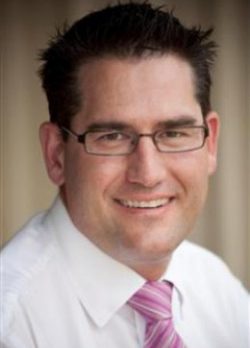

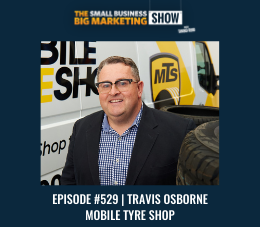
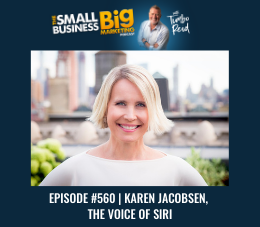
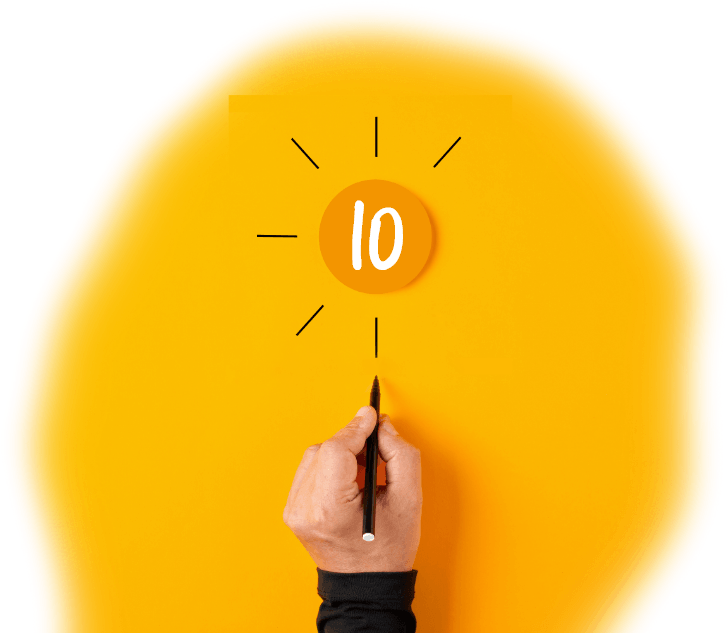
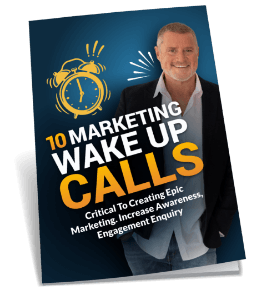
 Grab My 10 Marketing
Grab My 10 Marketing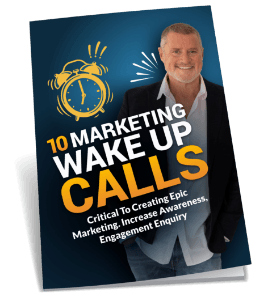
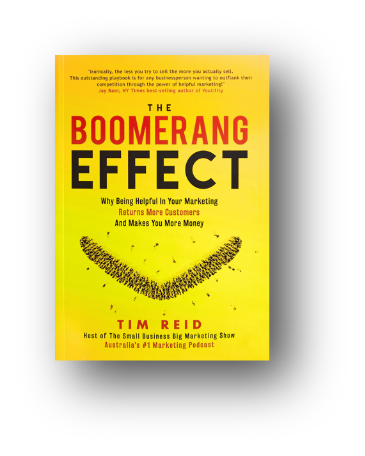
1 thought on “How To Promote Your Business Offline. AKA old school marketing!”
Timbo,
After listening to this podcast on 18 Aug 13, I made a note in my to-do list – Today is Nov 10….and I reckon I am about to click the little box that says completed!
The item was:
Write my editorial mission – old school style!
But…..before I mark the to-do as done, I hope that you can tell me what you think my business does….bit hopeful, I know, but you don’t know me or my business, so…..
Isn’t that the outcome required of the editorial mission?
So here goes….
I allow you, the beer lover, to pour fresh, cold beer from the tap at your party or event to make you feel like you’re at your favourite watering hole.
I know you are a busy man but with any luck your reply should just take a few ticks of a flick…..
Then, I’ll reply to you with a Big Grin ( and a to-do ticked off) or a new Editorial mission!
What does my business do Timbo….
Thanks
Brett Connell